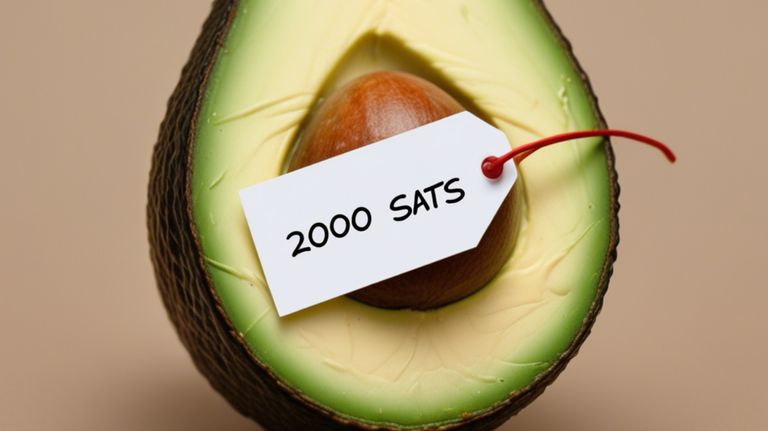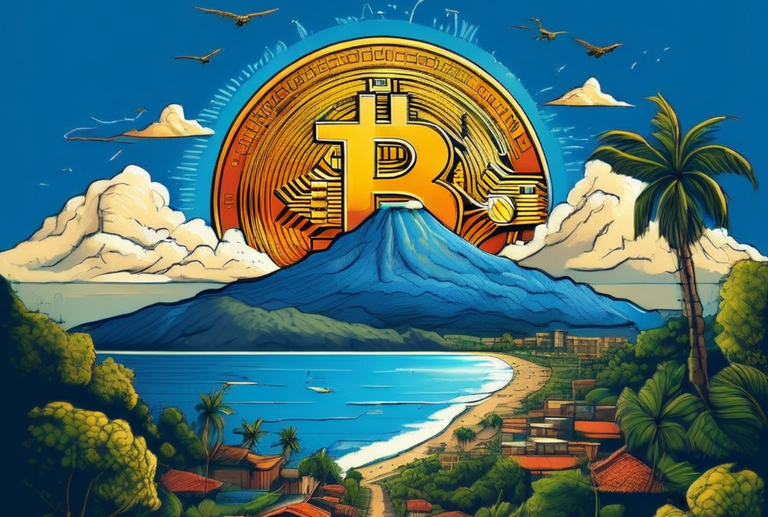For much of human history, goods and services were priced in gold, or at least currencies that were backed by precious metals. That changed abruptly in 1971, when the United States dropped the gold standard, and commenced an unprecedented spending spree.
Despite the ensuing reckless fiscal and monetary policies, the US dollar is still accepted as the benchmark currency, even 53 years later. However, the powers that be are clearly pushing the population towards a reset, Central Bank Digital Currencies, and a new (possibly gold-backed) BRICS currency.

CBDCs Vs Bitcoin
As the established powers nudge the populace towards CBDCs, there is another trend emerging. Grassroots communities have been adopting decentralized and censorship-resistant cryptocurrencies, like Bitcoin.
For various reasons, I do not believe the masterminds behind CBDCs and the BRICS currency are responsible for Bitcoin's emergence, and if that is indeed the case, what role will these novel cryptocurrencies play in the new global economy?
Driven by financial incentives and the desire for independence, the best talent seems to be gravitating towards cryptocurrencies, rather than CBDCs. Moreover, community-based crypto appeals more to the younger generations than government-sponsored CBDCs.
For those reasons, I believe that cryptocurrencies will eventually win favor over national and global CBDCs.
Bitcoin's Strengths
Despite the fact that other Proof of Work cryptocurrencies have been gaining hash power, Bitcoin still dominates in this regard, and could therefore be considered the most secure cryptocurrency.
Having the first mover advantage since 2009, and having received the most rigorous testing over time (as a multi-trillion dollar honey pot), Bitcoin could remain at the head of the pack, even if its overall market dominance decreases over time.
Bitcoin has also established itself as a legal payment method in Japan, El Salvador, and Argentina, and appears to have become a strategic reserve asset in Bhutan. Depending on the upcoming election results, it could gain similar status in the US as well.

Considering how Bitcoin's roots are being firmly planted around the world, could it become the new international reserve currency when the dollar fails?
In other words, when we go shopping will all goods and services be priced in Satoshis (one hundred millionth of a single bitcoin), rather than dollars?
We must accept the undeniable truth that Bitcoin has strong competition.
A Multi-Chain World
Several American states have been rejecting tyrannical CBDCs, and passing laws in favor of cryptocurrencies in general, and this trend will likely grow as different zones fight for their freedom and independence.
As the people start to use cryptocurrencies for things like social networks, cellular service, compute power, and decentralized storage, is it possible that Bitcoin will eventually be totally replaced by these alternative cryptocurrencies, or will it always remain the standard?
Will different regions adopt different cryptocurrencies, and enforce them within their own jurisdictions? For example, we have already seen El Salvador adopt a Bitcoin standard. Could Dubai eventually make Solana their official currency? Might Saint Kitts make Bitcoin Cash their standard?
Looking further into the future, if the United States were to break apart in the coming years due to economic collapse and other irreconcilable differences, could we see different states and small towns adopting different cryptocurrencies in their local domains?
If this were to pass, would the adopted cryptocurrency be used not only as a currency to pay for goods and services, but also to vote on local governance decisions in the respective area?

The Universal Measuring Stick
What would happen if we were to travel from one autonomous region to another? It would be necessary to convert from one cryptocurrency to another, and this could be accomplished permissionlessly via a service like THORchain or Maya Protocol.
However, we would still need a universal measuring stick to convert from one crypto to another. For this reason, I think Bitcoin might remain the traditional "digital gold" of the world, and the standard we use to trade between the thousands of cryptocurrencies that will emerge.
Gold -> USD -> Bitcoin
Just because prices are measured in US dollars today, doesn't mean they always will be. Considering how goods and services were priced in gold in the past, it's entirely possible that everything could be priced in Bitcoin (or Satoshis) in the future.
That said, there's no stopping the emergence of alternative grassroots cryptocurrencies, and even though they may continue to increase in value relative to Bitcoin, Bitcoin may always be the measuring stick we use to swap between them.
Do you think Bitcoin will always remain the dominant cryptocurrency?
Until next time...
If you found this article interesting, be sure to check out my other posts on crypto and finance here on the HIVE blockchain. You can also follow me on InLeo for more frequent updates.
Resources
Images Courtesy of Venice AI [1]
Image Of The United States Breaking Apart [2]
Posted Using InLeo Alpha